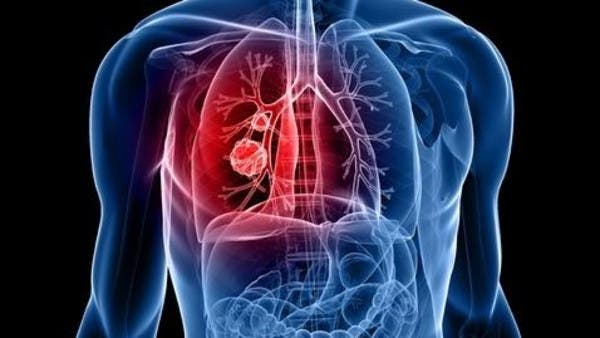Some air pollutants show up to be a “hidden killer”, as they can result in a amount of lung cancers in men and women who do not smoke, as a result of a system spelled out by a study printed on Saturday, and acquiring their knowledge is an “essential move in science. and culture “, in accordance to a team of professionals.
Experts from the Francis Crick Institute and University School London explained that good particles (fewer than 2.5 microns, around the diameter of a hair), which are deemed to be a bring about of local climate adjust, lead to cancerous improvements. in the cells of the respiratory technique.
invisible killer
The good particles in exhaust gases, brake dust or fossil gas fumes can be likened to a “concealed killer,” stated Charles Swanton of the Francis Crick Institute, who presented the effects of this exploration, which was not however examined by other researchers. Through the once-a-year convention of the European Culture of Medical Oncology, held in Paris on 13 September.
When Professor Swanton recalled that the damage from air air pollution has been recognised for a extended time, he famous that researchers “were not confident if or how this pollution right leads to lung most cancers.”
The researchers first studied info on about 460,000 folks from England, South Korea and Taiwan and confirmed an affiliation amongst exposure to increased concentrations of fine particles and an amplified risk of lung most cancers.
250 samples
Having said that, the most notable discovery is the comprehending of the mechanism by which these pollutants cause lung most cancers in non-smokers.
In laboratory reports in mice, the scientists confirmed that the particles induced adjustments in two genes, specifically the epidermal expansion aspect receptor (EGFR) and Keras (KRAS), which are previously joined to lung cancer.
Then the scientists analyzed about 250 samples of healthier human lung tissue that had hardly ever been uncovered to carcinogens from tobacco or hefty pollution. Mutations in the EGFR gene appeared in 18% of the samples and alterations in the KRAS in 33% of them.
“mystery”
Professor Swanton claimed that “these mutations may well not be more than enough on their have to direct to cancer, but when the cell is uncovered to contamination, it is probable to encourage some variety of inflammatory response.” He included that “the cell will give rise to most cancers” if it “has a mutation”.
Swanton, who leads the study’s direct sponsor, Cancer Research United kingdom, claimed the review was “a decoding of the biological mechanism of what was a secret.”
Publicity to carcinogens, these kinds of as individuals from cigarette smoke or pollution, was believed to cause genetic mutations in cells, creating them cancerous and foremost to their proliferation.
–
–
The director of the Most cancers Avoidance Application at the Gustave Rossi Institute Sozette Delalog noted that the review benefits are a “groundbreaking growth” in that “there was no former proof of this choice carcinogenesis”.
This oncologist, in demand of discussing the study during the meeting, stressed that it is an “essential stage for science”, hoping that it is also “for modern society”, and felt that “it opens a large doorway to knowledge. but also to avoidance ».
Lessen air pollution
Professor Swanton reported the up coming action would be ‘to recognize why some of the altered lung cells flip into cancerous cells following publicity to pollutants’.
A lot of scientists have proven that this review confirms that lessening air air pollution is also vital for health.
“We have a option amongst smoking or not, but we are unable to opt for the air we breathe,” Swanton mentioned. “This is hence a world wide trouble as the number of folks exposed to unhealthy stages of pollution is probably to be five occasions larger than individuals exposed to tobacco smoke.”
Far more than 90 p.c of the world’s populace is uncovered to what the Environment Well being Business describes as extreme stages of pollutants.
–


